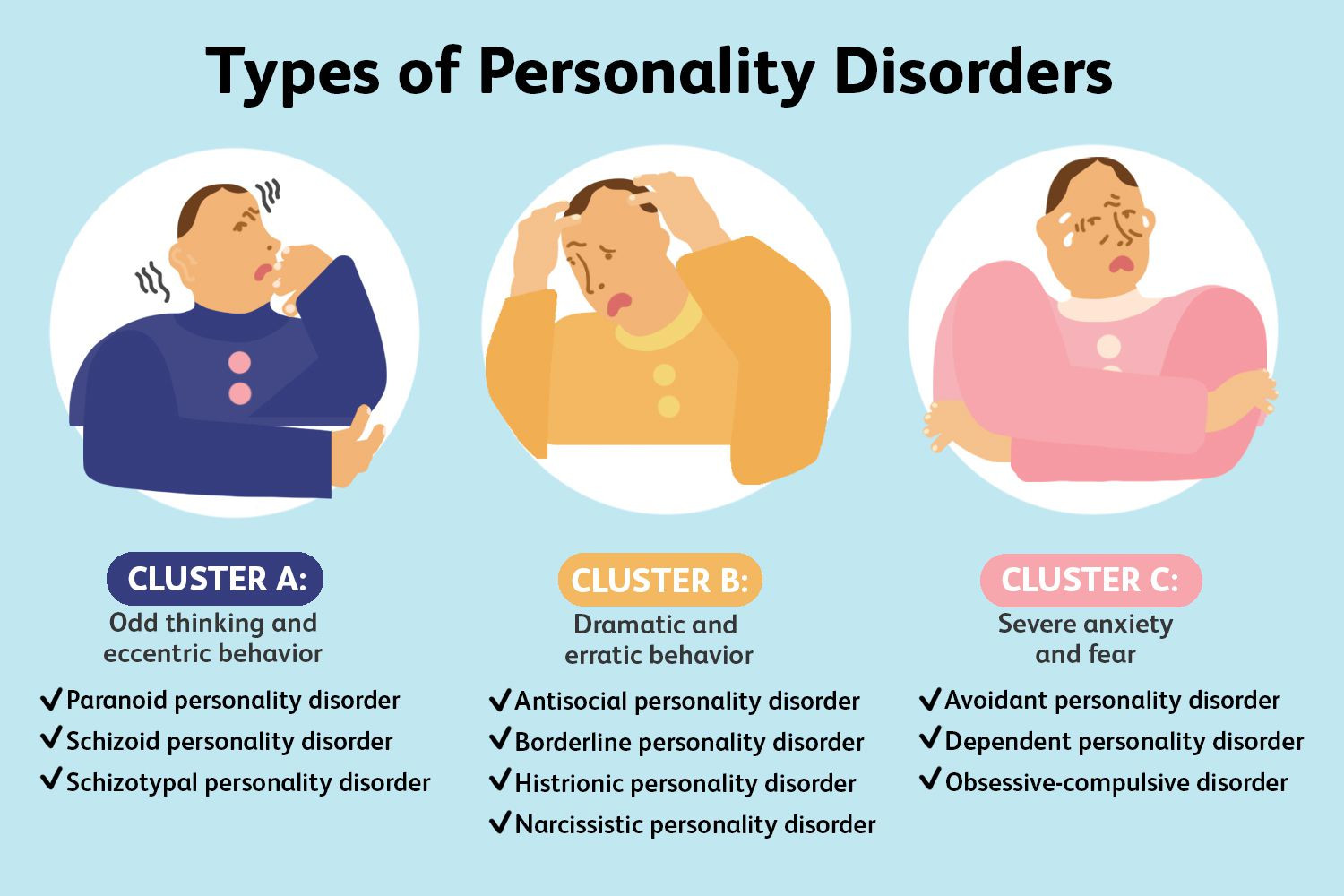Personality Disorders Understanding Complex Patterns
Personality disorders are mental health conditions that involve enduring patterns of thinking, feeling, and behaving that deviate significantly from cultural norms and cause distress or impairment.1
Common Personality Disorders
- Borderline Personality Disorder (BPD): Characterized by intense emotions, unstable relationships, and impulsive behavior.
- Narcissistic Personality Disorder: Involves an inflated sense of self-importance, a need for admiration, and a lack of empathy.2
- Antisocial Personality Disorder: Marked by a disregard for others’ rights and feelings, often leading to criminal behavior.
- Avoidant Personality Disorder: Characterized by feelings of inadequacy and extreme sensitivity to criticism.
- Dependent Personality Disorder: Involves a pervasive need to be cared for and a fear of abandonment.
- Obsessive-Compulsive Personality Disorder (OCPD): Characterized by a preoccupation with orderliness, perfectionism, and control.
Symptoms of Personality Disorders
The specific symptoms of personality disorders can vary, but common signs may include:
- Difficulty in relationships: Struggles with forming and maintaining healthy relationships.
- Emotional instability: Rapid mood swings and intense emotions.
- Impulsive behavior: Acting without thinking and engaging in risky behaviors.
- Distorted thinking: Black-and-white thinking, excessive self-criticism, or grandiosity.
- Problems with identity: Difficulty understanding and expressing one’s own identity.
Treatment for Personality Disorders
Treatment for personality disorders often involves a combination of therapies, including:
- Psychotherapy: Talk therapy can help individuals understand and manage their symptoms.
- Dialectical Behavior Therapy (DBT): A specific type of therapy that focuses on mindfulness, emotional regulation, distress tolerance, and interpersonal effectiveness.
- Medication: While medication alone is not typically a cure, it can help manage specific symptoms, such as anxiety or depression.
It’s important to note that personality disorders can be complex and challenging to treat. With appropriate treatment and support, individuals with personality disorders can learn to manage their symptoms and improve their quality3 of life.

